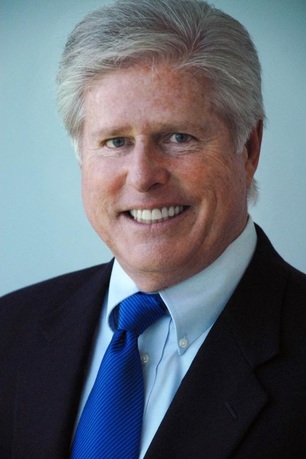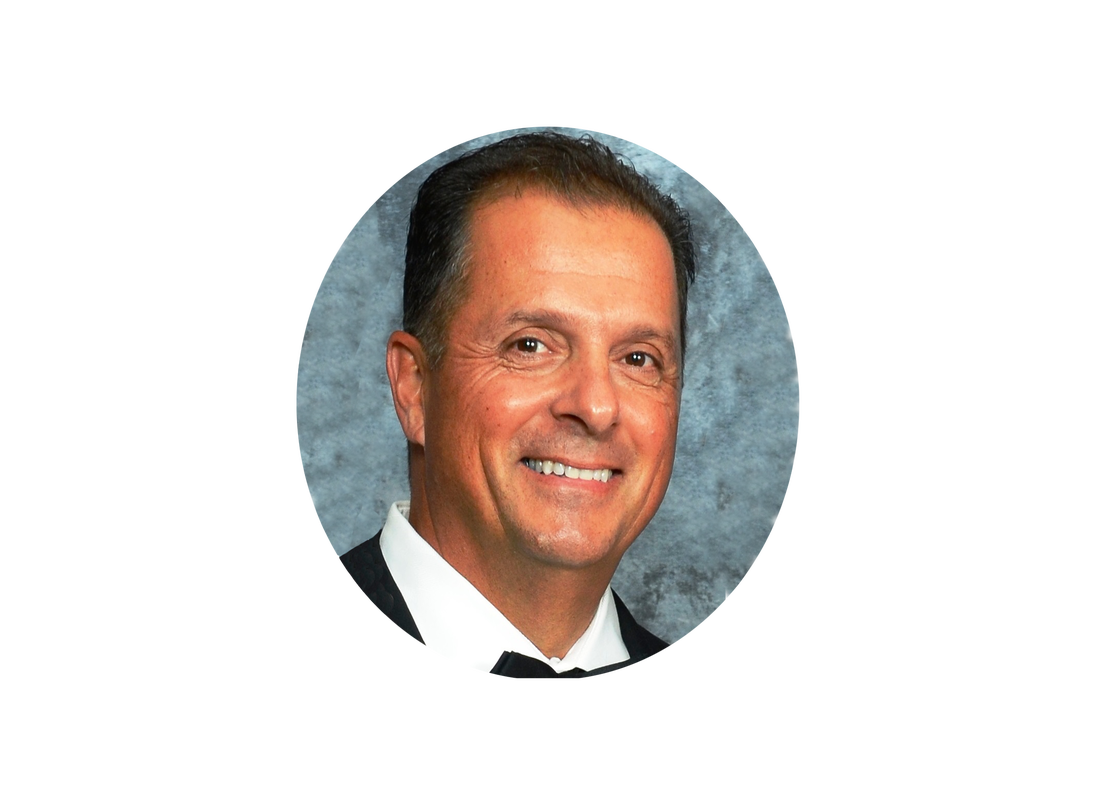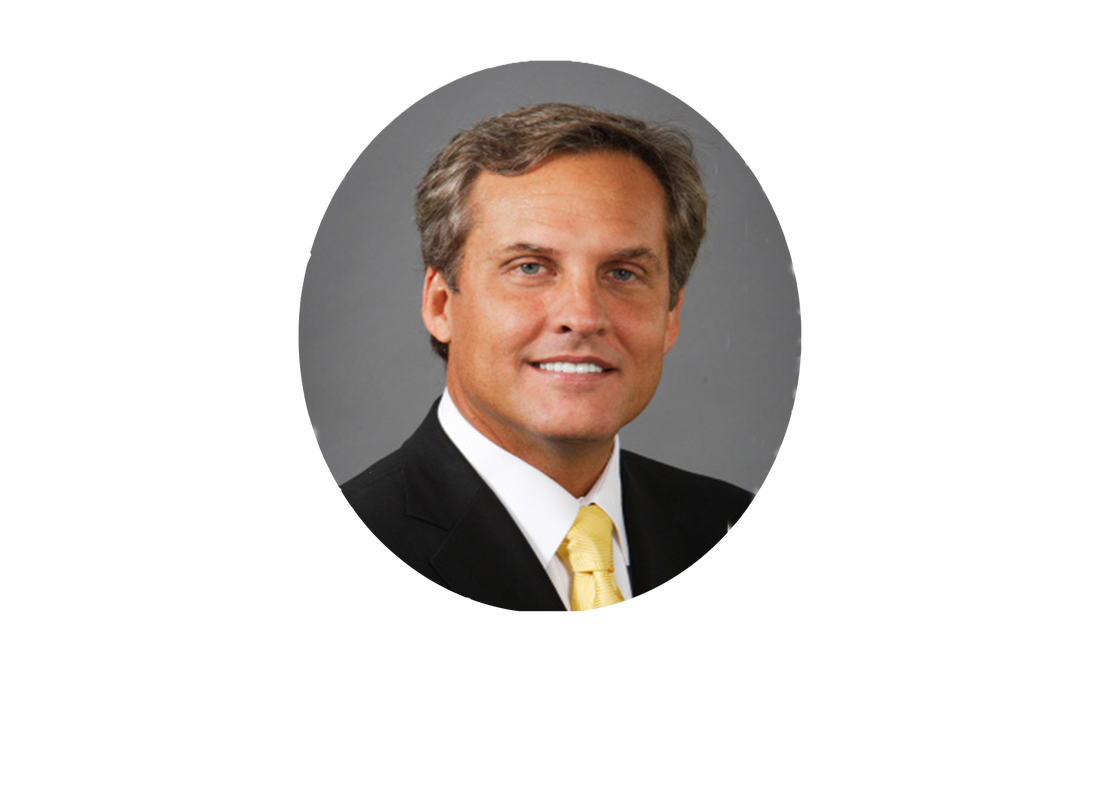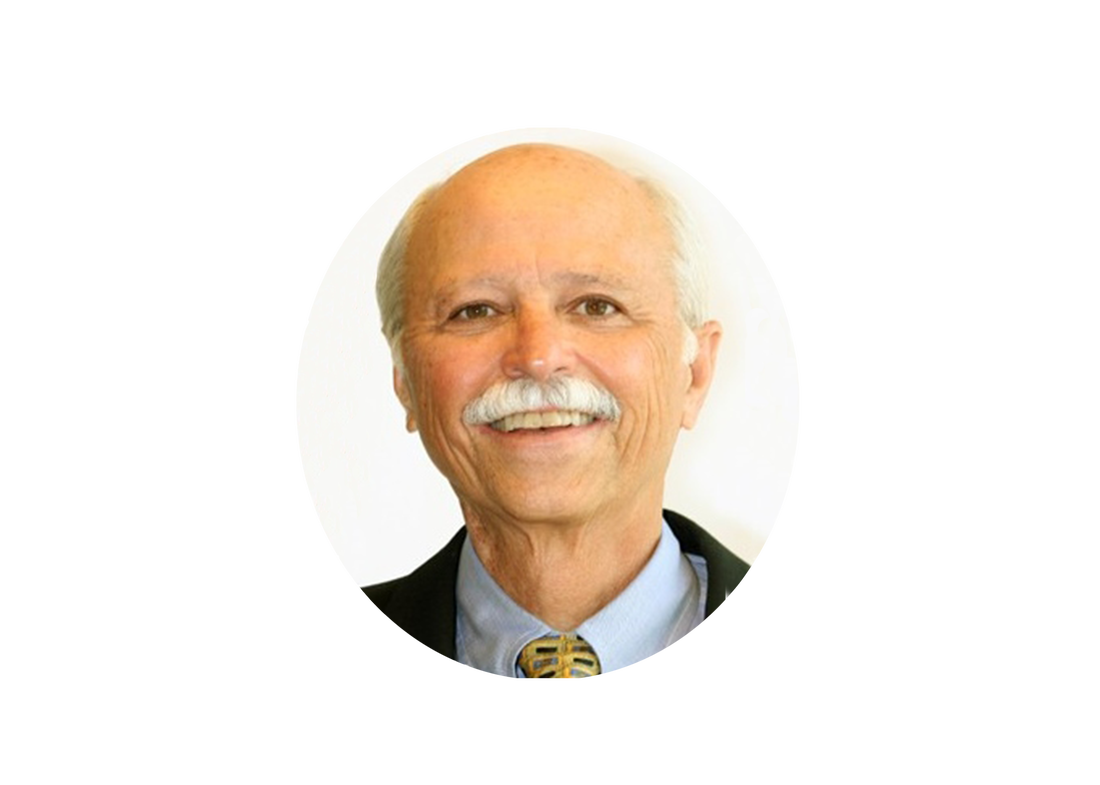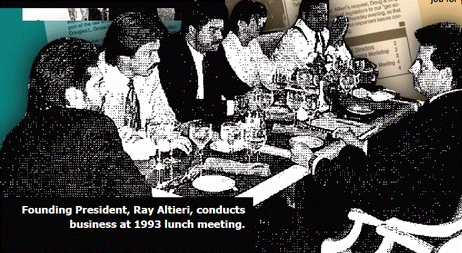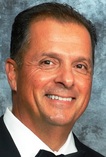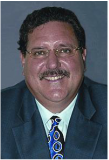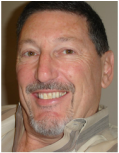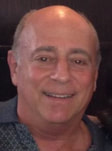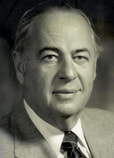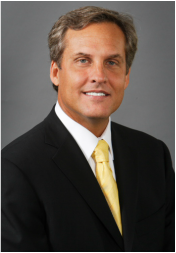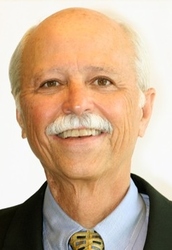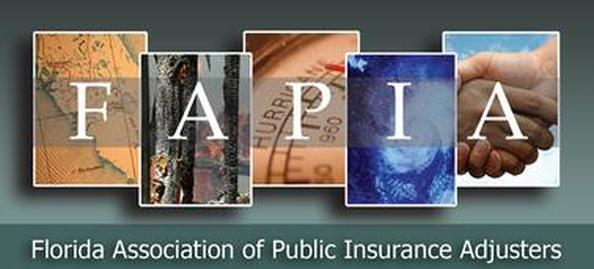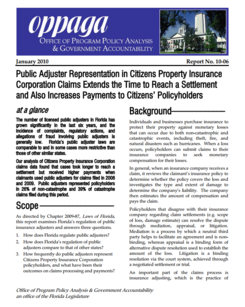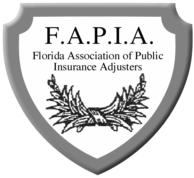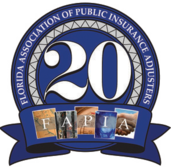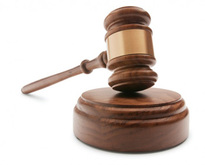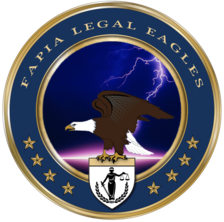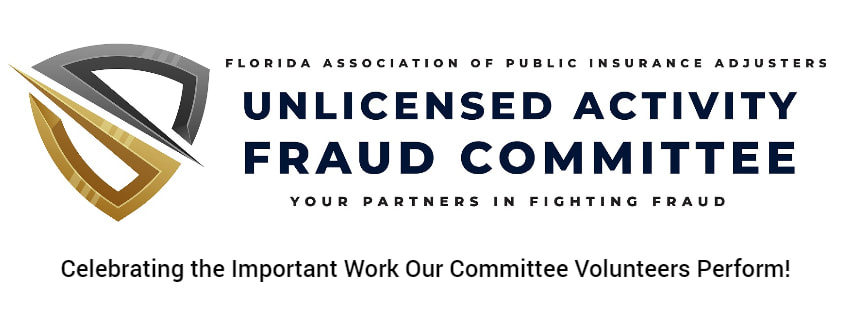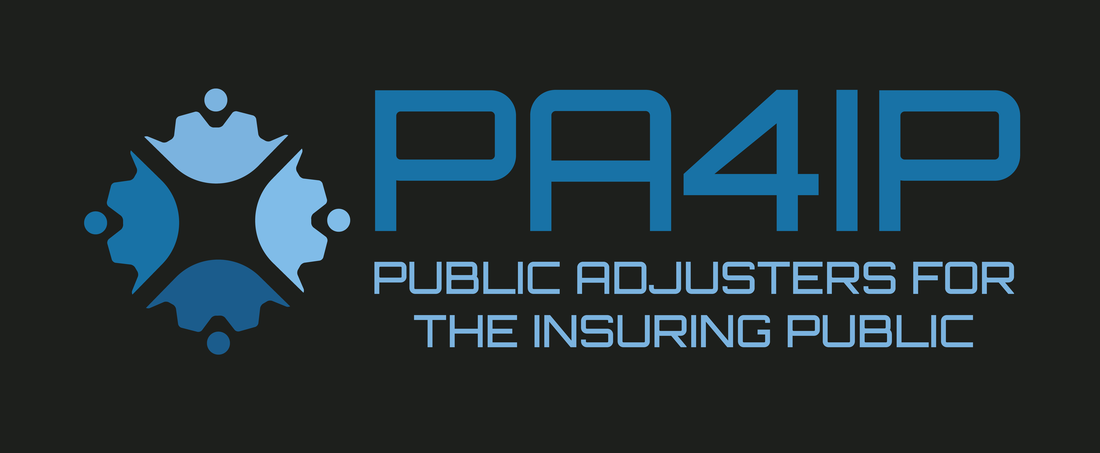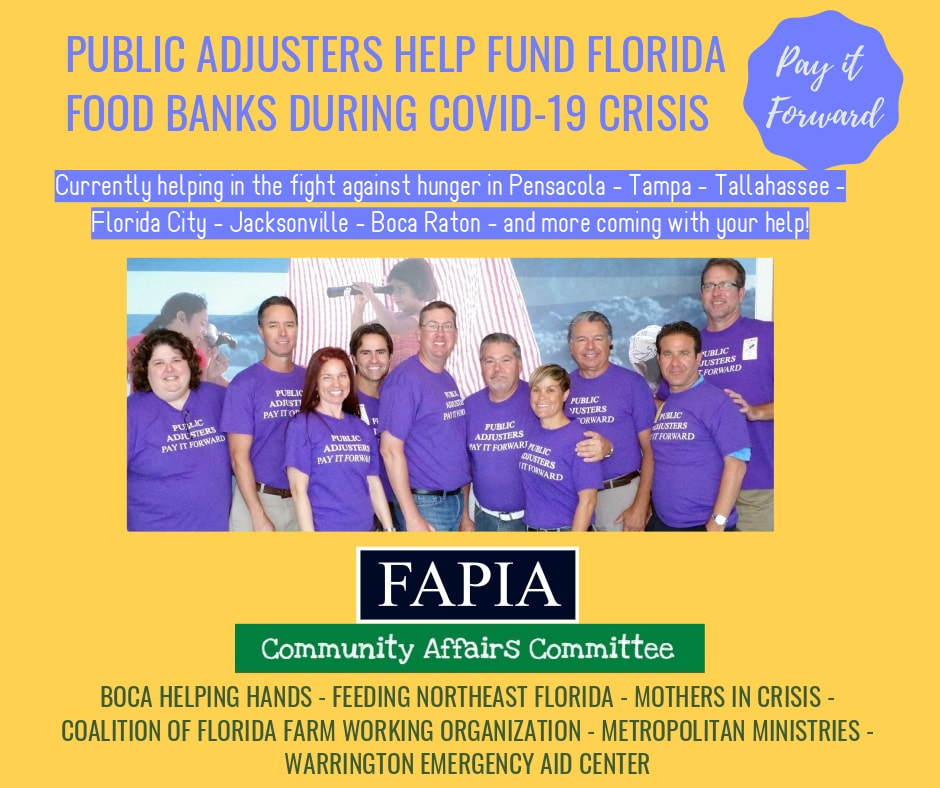radar loop courtesy of NOAA
Hurricane Andrew made
On August 24, 1992, Hurricane Andrew hit South Florida with a vengeance. Florida public adjusters began the arduous task of helping people whose lives and businesses had been destroyed by the devastation to recover from the costliest storm in US History. As the demand for professional claims handling services increased with over 164,000 homes and businesses affected, public insurance adjusters from all over the country poured into South Florida. Most of these individuals were qualified professionals. Some were neither.
|
|
The Origin of the Bad Actor Narrative
Stories about the unqualified public adjusters and the damage they could inflict were becoming news. The insurance industry was bound and determined to do something about it. In the process, all public adjusters were lumped into the same category of “bad actors” despite the fact that the vast majority of public adjusters were honest insurance professionals and the problems seemed to be coming from out of state public adjusters. Unfortunately, we Florida licensed public adjusters (there were just a handful of us) were about to feel the wrath of the State Legislature and Department of Insurance, due to the actions of our misguided, out of state, brethren.
|
The Department of Insurance ReactionMost government officials didn’t know what a public adjuster was. But with each story about a “bad actor” the influence against our industry was getting stronger. Bureaucrats, at the highest level of the DOI, were clueless as to our function and purpose. Insurance Commissioner, Tom Gallagher (1st Term), our chief regulator in Florida, actually began producing commercials regularly on television and radio, in Miami, telling people not to hire public adjusters! The DOI began distributing official bulletins negatively defining public adjusters and cautioning the public . The National Association of Public Insurance Adjusters (NAPIA) pressured our DOI and as a result, emergency licensing of out of state public adjusters was finally granted. However, to obtain emergency licensure, an applicant would be required to post a bond, work under a supervising Florida Licensed public adjuster, provide a Letter of Good Standing from their home state, and just for good measure-the applicant was required to be sponsored by any one of the following who worked in Florida exclusively: an insurance agent, an independent adjuster, or an insurance company executive. It took months for applications to be approved and then after approval, an “administrative processing fee” penalized many of the same P.A.’s. The DOI was in disarray! Shortly thereafter, legislation was actually introduced with the effect of putting all public adjusters out of business.
|
FLORIDA’S INSURANCE COMMISSIONER, IN 1992
TOM GALLAGHER CURRENTLY THE CHIEF OPERATING OFFICER OF PEOPLE'S TRUST INSURANCE |
In December of 1992, NAPIA moved its Mid-Year Convention to Miami in an effort to accommodate its members who were working in South Florida. The DOI’s Agency Director had come to the meeting as a guest speaker. He warned the entire organization of impending doom for public adjusting in Florida once the next Legislative session opened in a few short months. After this gentleman spoke, Ray Altieri’s partner (at the time) and long time public adjuster, Jerry Levin, of Utica, New York, came to him while he was talking with attorney, William “Chip” Merlin and suggested that we were going to need a state public adjusters association to fight this off. Immediately, they went to work. We contacted all of Florida’s PA’s and attorney Doug Grose. We set a meeting for all Florida Public Adjusters in Orlando.
FAPIA: The Inaugural Meeting – February 1993
|
The inaugural meeting took place in February 1993 at the Marriott World Center in Orlando. At dinner the night before the meeting, Chip Merlin and Doug Grose, as our legal advisors, proposed a slate of Officers, which was to be voted on the next day by the public adjusters who were in attendance. Raymond A. Altieri, Jr. of Tampa was nominated as the organization’s first President, Steven Lesser of Miami Beach as President –Elect, Stephen Sarasohn of Boca Raton as Vice President, Chuck Howarth of Tampa as Treasurer, and Allan Brodsky of Hollywood as Secretary. The Directors were James Toukatly of Orlando, Craig Tanner of Clearwater, Ron Livingstone of Orlando, and Ira Sarasohn of Boca Raton.
|
Original Legal Counsel
|
William "Chip" Merlin, Esq.
|
Douglas Grose, Esq
|
FAPIA MISSION STATEMENT
To organize the Public Insurance Adjusters of the State of Florida to better serve the interests of the insured citizenry of the State and to help facilitate the expeditious and proper handling of insurance losses and claims.
To unite the Public Insurance Adjusters of the State of Florida for their mutual benefit, education and protection, as well as to protect and benefit the general public.
To establish and maintain high standards of professional conduct and efficiency among its members, and to study and assist in carrying out the provisions of all laws and regulations pertaining to Public Insurance Adjusters that may be enacted or formulated by the U.S. Government or by the Florida Legislature and Insurance Department of the State of Florida.
To advance and protect the interests of its members, to promote their welfare, and to attain a spirit of helpful assistance and cooperation among its members. To become a source of consultation regarding industry issues for the Florida Department of Insurance.
To unite the Public Insurance Adjusters of the State of Florida for their mutual benefit, education and protection, as well as to protect and benefit the general public.
To establish and maintain high standards of professional conduct and efficiency among its members, and to study and assist in carrying out the provisions of all laws and regulations pertaining to Public Insurance Adjusters that may be enacted or formulated by the U.S. Government or by the Florida Legislature and Insurance Department of the State of Florida.
To advance and protect the interests of its members, to promote their welfare, and to attain a spirit of helpful assistance and cooperation among its members. To become a source of consultation regarding industry issues for the Florida Department of Insurance.
Working Toward the Common Good
|
Competing public adjusters began to work together for the common good. By the next morning the slate was voted on and accepted. As President, Altieri, Jr. used the National Association of Public Insurance Adjusters (NAPIA) as an organizational model and employed a similar system for FAPIA. The same organizational model remains in place today, 30 years later. The original FAPIA Board of Directors had three major themes moving forward:
• Prevent the extinction of Public Adjusting in Florida • Unity of purpose was mandatory for survival • Include all licensed PA’s in FAPIA to ensure success |
FAPIA Meets With The Department of Insurance
FAPIA was armed with one strategy. As coined by Chip Merlin, “We must approach on the side of Angels”. Testify from the perspective of what eliminating PA’s would mean to the public. Many of the PA’s named above and others, testified in front of the General Counsel of the DOI on this very issue. We were successful! We were invited to participate in the writing of new legislation. They accepted our work almost verbatim. During this same period and in addition to fighting for our right to adjust first party property losses, there was a competing group of PA’s who formed FAPA (Florida Association of Public Adjusters). This group was trying to fight for the “right” to adjust liability and bodily injury claims as an alternative to attorneys! FAPIA leadership rejected that dangerous notion and separated ourselves greatly from FAPA. It was evident to the DOI that we would support aggressive and responsible regulation as an industry. We gained credibility as a new organization with top management personnel at the DOI.
Our industry had a voice!
Our industry had a voice!
FAPIA Moves Forward Into Its First Decade
Armed with newly earned credibility at the DOI, FAPIA flourished. New challenges came and went through sacrifice of time and money by many of the Charter Members. First name basis relationships were established with DOI Division Directors. New proposed Rules and Legislation came forward and the DOI actively sought our input and opinions. FAPIA’s language was inserted into new Bills involving PA’s. A Tallahassee Mid-Year Meeting tradition was established to coincide with the annual Legislative Session to keep us in front of Senators, Representatives, and the DOI. Negative legislation slowed for a period, which allowed FAPIA to turn inward. By –Law Revisions were made in 2000 to help conform to organizational growth. An Officer’s Ladder was created to send experienced members to the Presidency. FAPIA enhanced its professionalism by developing a website and hiring an Administrator, a Lobbyist, and a CPA firm to assist the organization in its affairs.FAPIA has also gained recognition beyond the DOI, as many of its members became members of the Windstorm Network with Dick Tutwiler becoming that organization’s President and Steve Lesser and Jim Toukatly voted to its Board of Directors. NAPIA also has repeatedly recognized FAPIA as the largest and best State public adjusting association in the country. FAPIA was also rewarded through NAPIA, by voting Raymond A. Altieri, Jr. our founding President. to its Officer’s Ladder. Altieri became NAPIA’s President in 2011. FAPIA’s growth has been outstanding. Our first meetings would attract 20 to 30 PA’s. Today we have nearly 900 members and our annual meetings are usually sold out. That’s a testimony to the hard work of all.
|
In the years following, FAPIA continued to make strides promoting good public policy by developing educational programs to make the most up to date information available to the public adjusting community in Florida. FAPIA has recruited and boasts some of the most knowledgeable faculty members available to satisfy stringent public adjuster continuing education requirements. Our association has created its own Code of Ethics that members must abide by and our Ethics Committee is charged with the responsibility of making sure our members hold the policyholders interests in the highest regard. FAPIA has taken a position of supporting responsible legislation that helps improve the level of professionalism in the public adjusting industry.
|
A study released in 2010 by the Florida Legislature Office of Program Policy and Government Accountability (OPPAGA) study on public adjusters found that laws and regulations governing public insurance adjusters are among the most restrictive in the country. What some might find surprising is that in many cases, these regulations are in place due to the efforts FAPIA. Learn more at ASKOPPAGA.COM
In recent years, the Florida Association of Public Insurance Adjusters (FAPIA) has supported regulations strengthening the professionalism of the industry, and in so doing, protect the rights of insured Floridians.
Restoring Licensing Examination Requirements
Public insurance adjusters believe that only those with the dedication and commitment to become highly educated about the industry should be eligible for licensure. On behalf of the industry, FAPIA secured legislation that restored state licensing exams to ensure the professionalism of all those involved in the handling of insurance claims.
Public insurance adjusters believe that only those with the dedication and commitment to become highly educated about the industry should be eligible for licensure. On behalf of the industry, FAPIA secured legislation that restored state licensing exams to ensure the professionalism of all those involved in the handling of insurance claims.
Adding Apprenticeship Programs
FAPIA decided not to stop with licensing exams. The association developed and secured legislation (F.S. 626.8541) for an apprenticeship program, which requires all new licensees to take a 40-hour course, sit for the state examination and then file for an apprentice license, which they must hold for 12 months before they are qualified to become a public insurance adjuster.
FAPIA decided not to stop with licensing exams. The association developed and secured legislation (F.S. 626.8541) for an apprenticeship program, which requires all new licensees to take a 40-hour course, sit for the state examination and then file for an apprentice license, which they must hold for 12 months before they are qualified to become a public insurance adjuster.
Strengthening Conflict-of-Interest Regulations
Clients often ask for contractor references to complete needed repairs. To ensure that public adjusters can provide such references with no fear of conflict-of-interest, FAPIA supported legislation (F.S. 626.8795) that establishes that public adjusters can in no way profit from repair work on the claims they handle. They cannot serve as the contractor themselves, and they cannot receive any compensation for contractor references.
Clients often ask for contractor references to complete needed repairs. To ensure that public adjusters can provide such references with no fear of conflict-of-interest, FAPIA supported legislation (F.S. 626.8795) that establishes that public adjusters can in no way profit from repair work on the claims they handle. They cannot serve as the contractor themselves, and they cannot receive any compensation for contractor references.
|
Requiring Continuing Education
FAPIA was responsible for strengthening continuing education requirements (F.S. 626.869(4)(b)), which now hold that any individual holding a license as a public adjuster for 24 months or longer must every two years complete 24 hours of courses, including a four hour law and ethics course specific to public adjusting. |
|
Lawsuit against Sawgrass Mutual Insurance
The National Association of Public Insurance Adjusters joined FAPIA in a lawsuit filed against an insurer that prohibited the use of public adjusters in their policy of insurance. The lawsuit was later dismissed for lack of standing. The carrier took a position that policyholders who used the services of a public adjuster in the claim process would be non-renewed. |
|
Lawsuit on 48 Hour Ban On Solicitations by a Public Adjuster
In 2012 FAPIA won a four year court battle and a unanimous Florida Supreme Court decision that the arbitrary 48 hour ban on solicitation that was implemented by the legislature singling out our industry was unconstitutional. Then President, Harvey Wolfman was quoted as saying, “FAPIA and its nearly 400 member public adjusters are committed to helping policyholders receive full and fair compensation following damage to their property,” said Wolfman. “Thanks to this ruling, we can help more policyholders in those critical first hours when they need it most.” |
|
FAPIA Testifies at Citizens Board of Governors Meeting
In 2012, FAPIA Administrator, Nancy Dominguez, along with others testified against an attempt to further reduce coverage for Citizens policyholders for water related losses. The measure was defeated by a vote of the Citizens Board of Governors after the public testimony which included our statement. |
|
Stopping Fraud and Unlicensed Activity
In addition to fostering legislation to protect Florida consumers, currently works with the Department of Financial Services Division of Agents and Agency Services on the investigation of reported cases of the unlicensed practice of public adjusting. FAPIA members have demonstrated a zero tolerance policy for fraud and have publicly pledged support to the Department in their ongoing work to combat insurance fraud. |
CITIZENS FEE BAN REPEAL
When the insurance industry succeeded in making it illegal for public adjusters to charge Citizens Property Insurance policyholders for service rendered based on the initial claim payment, FAPIA sprang into action. While public adjusters across Florida began working cases on a pro bono basis the number of lawsuits saw a dramatic increase. Policyholders with a claim dispute found it more difficult to find representation outside of hiring an attorney. We lobbied lawmakers while preparing for another major lawsuit on the unconstitutionality of the fee ban. Ultimately, the language was repealed in 2013 and the right to retain a public adjuster and pay a reasonable fee for good and valuable services was returned to policyholders.
When the insurance industry succeeded in making it illegal for public adjusters to charge Citizens Property Insurance policyholders for service rendered based on the initial claim payment, FAPIA sprang into action. While public adjusters across Florida began working cases on a pro bono basis the number of lawsuits saw a dramatic increase. Policyholders with a claim dispute found it more difficult to find representation outside of hiring an attorney. We lobbied lawmakers while preparing for another major lawsuit on the unconstitutionality of the fee ban. Ultimately, the language was repealed in 2013 and the right to retain a public adjuster and pay a reasonable fee for good and valuable services was returned to policyholders.
|
POLICYHOLDER AMBASSADORS
FAPIA organized a state wide grassroots political activism committee that helps build awareness and disseminate information about the important role public adjusters play in the claim process. Our Ambassadors help educate legislators about the challenges our industry and the policyholders we represent face. Public Adjusters for the Insuring Public (PA4IP.org)
A political action committee that is supported by policyholder advocates for the purpose of supporting candidates and legislators who are sympathetic to the concerns of policyholders and their representatives. |
|
Community Affairs Committee
A FAPIA initiative allowing Public Adjusters to join together annually for the purpose of Paying It Forward in their local communities throughout Florida. We fundraise and offer financial support to deserving groups that help our communities recover from difficult challenges. This effort was kicked off at the Joe DiMaggio Children’s Hospital in 2014 and since then our members have donated over $120,000 and volunteered for amazing charitable organizations in Florida including Habitat for Humanity, Boca Helping Hands, Food banks throughout the state, JAFCO, Jessica June Children's Cancer Foundation, Gigi's Playhouse Tampa and many more. We are especially proud of the efforts of this committee and the members who participate. Learn more |
Today, FAPIA is a trusted leader for public adjusters and the policyholders they represent. We are the largest state trade association for public adjusters in the nation, with nearly 900 members. We are blessed to be able to make a living in a profession that is all about helping people. As long as there are policyholders, and as long as claim disputes exist, FAPIA and its members will continue to serve as a vital consumer safety valve. Every public adjuster has experienced the gratitude from a home or business owner when their work resulted in a fair and just claim payment. This is why FAPIA leaders work to protect the public adjusting industry through legislative advocacy, public relations and legal actions.
Each of you who support the public adjusting industry through FAPIA, help to make it possible for policyholders in this state to receive full and fair compensation with the help of a public adjuster. Public adjusting is still available in Florida, in large part, because our industry has had a voice for 30 years. That voice is FAPIA.
We have enjoyed success and won many battles, but the war is not over. And for the sake of our industry as well as those policyholders we serve, FAPIA is committed to continuing our united efforts to protect and strengthen the environment for public adjusting in Florida.
One Voice...One FAPIA
Each of you who support the public adjusting industry through FAPIA, help to make it possible for policyholders in this state to receive full and fair compensation with the help of a public adjuster. Public adjusting is still available in Florida, in large part, because our industry has had a voice for 30 years. That voice is FAPIA.
We have enjoyed success and won many battles, but the war is not over. And for the sake of our industry as well as those policyholders we serve, FAPIA is committed to continuing our united efforts to protect and strengthen the environment for public adjusting in Florida.
One Voice...One FAPIA



